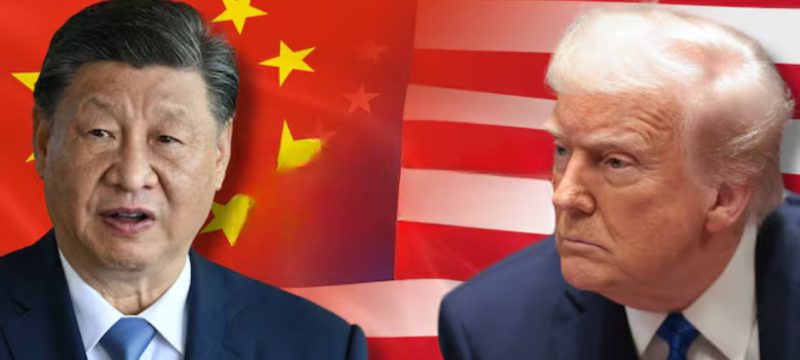In a major intensification of U.S.-China trade tensions, former U.S. President Donald Trump has announced the imposition of an extraordinary 104% tariff on all Chinese imports, set to take effect at midnight on Tuesday, April 8. This drastic measure is intended to counter what Trump describes as China’s longstanding unfair trade practices and follows escalating disputes between the two nations.
The new tariff comes in direct retaliation to China’s recent decision to impose tariffs on American goods. It adds to an already scheduled 34% duty, pushing the overall rate on Chinese imports to an unprecedented 104%. Trump has stated that any further countermeasures by China will be met with even harsher economic retaliation.
Read more: China Vows to ‘Fight to the End’ Amid Ongoing Trump Tariff Dispute
Additionally, ongoing trade discussions with Beijing have been suspended indefinitely, with the U.S. opting to pursue new agreements with other global partners that prioritize American interests.
Trump emphasized that the United States will no longer allow itself to be exploited through imbalanced trade agreements and vowed to protect American workers at all costs.
In a press briefing, White House Press Secretary Karoline Leavitt confirmed the tariff’s implementation timeline and stated there would be no delays. She added that around 70 countries are now in communication with the U.S. to explore potential trade agreements shaped around mutual benefit and American priorities.
The global response has been swift. UN Secretary-General António Guterres warned that trade wars typically lead to mutual losses and could significantly harm vulnerable economies, especially in developing countries. Despite these warnings, the Trump administration remains firm in its approach. Leavitt reiterated that Trump remains open to dialogue, but only on terms favorable to the U.S.
Disagreements within Trump’s own circle have also surfaced. Trade advisor Peter Navarro has pushed for even stronger measures, while Elon Musk has urged caution, warning of potential fallout. Leavitt brushed off their clash as internal debate, maintaining that Trump values diverse opinions but remains committed to his aggressive trade agenda.
With the introduction of these steep tariffs, the trade dispute between the U.S. and China has entered a new and unpredictable chapter—one that could have sweeping consequences for global markets and diplomatic relations.









